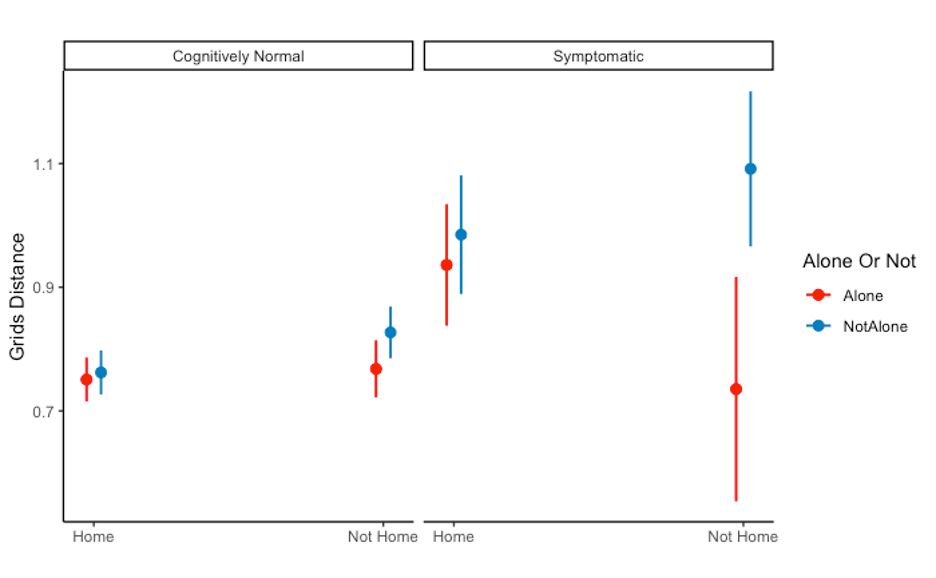
Jason Hassenstab
@ctrlab.org
Professor at Washington University in St. Louis. Alzheimer’s disease, Down syndrome, digital cognition researcher. Director of Cognitive Technology Research Laboratory. Into tennis, fly-fishing, espresso, woodworking, opera, und Deutsch lernen. ctrlab.org
Thanks! And yes you are on to something with testing people under "stress" of different kinds. In another paper by my PhD student Hannah Wilks, we found that testing OAs in the evening revealed about 10% more memory deficits in those with AD pathology. pmc.ncbi.nlm.nih.gov/articles/PMC...

Sharper in the morning: Cognitive time of day effects revealed with high-frequency smartphone testing
Decades of research has established a shift from an “eveningness” preference to a “morningness” preference with increasing age. Accordingly, older adults typically have better cognition in morning hou...
pmc.ncbi.nlm.nih.gov
September 13, 2025 at 4:22 PM
Thanks! And yes you are on to something with testing people under "stress" of different kinds. In another paper by my PhD student Hannah Wilks, we found that testing OAs in the evening revealed about 10% more memory deficits in those with AD pathology. pmc.ncbi.nlm.nih.gov/articles/PMC...
Overall, we think it sends a pretty positive message about the validity of remote, unsupervised #digitalcognition #EMA, in general. But of course we have to collect information about environments and especially distractions.
September 13, 2025 at 1:55 PM
Overall, we think it sends a pretty positive message about the validity of remote, unsupervised #digitalcognition #EMA, in general. But of course we have to collect information about environments and especially distractions.
One surprise was that the number of sessions where participants reported distractions was about 12% of sessions. So distractions are very very common and its really important to allow participants to tell you when they experience them in remote studies. 4/n
September 13, 2025 at 1:55 PM
One surprise was that the number of sessions where participants reported distractions was about 12% of sessions. So distractions are very very common and its really important to allow participants to tell you when they experience them in remote studies. 4/n
However, for those with very mild dementia (consistent with Mild Cognitive Impairment), environments and distractions started to matter more. Taking tests away from home AND when around others impacted those with cognitive symptoms. 3/n

September 13, 2025 at 1:55 PM
However, for those with very mild dementia (consistent with Mild Cognitive Impairment), environments and distractions started to matter more. Taking tests away from home AND when around others impacted those with cognitive symptoms. 3/n
We followed 380 cognitively normal (CN) older adults and 37 with very mild dementia with our smartphone #EMA platform called ARC. For the CNs, it didn't seem to matter if tests were taken at home or around others. Even sessions where overt distractions were experienced didn't matter. 2/n
September 13, 2025 at 1:55 PM
We followed 380 cognitively normal (CN) older adults and 37 with very mild dementia with our smartphone #EMA platform called ARC. For the CNs, it didn't seem to matter if tests were taken at home or around others. Even sessions where overt distractions were experienced didn't matter. 2/n
This is amazing. Thanks!
March 12, 2025 at 2:25 PM
This is amazing. Thanks!
LOL Just like STL. Don't you miss us?
February 19, 2025 at 8:10 PM
LOL Just like STL. Don't you miss us?

